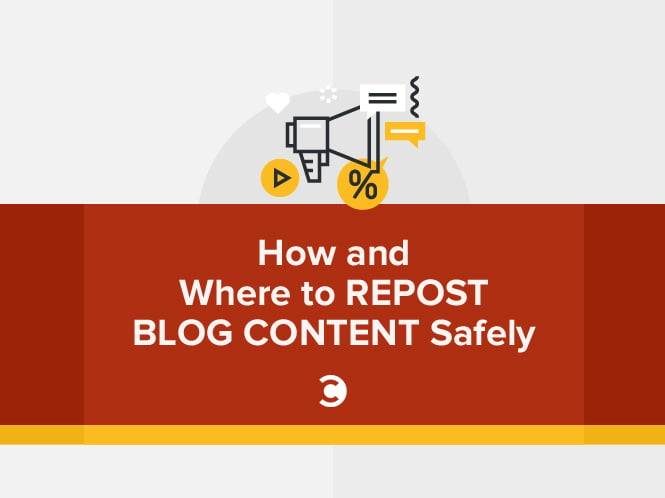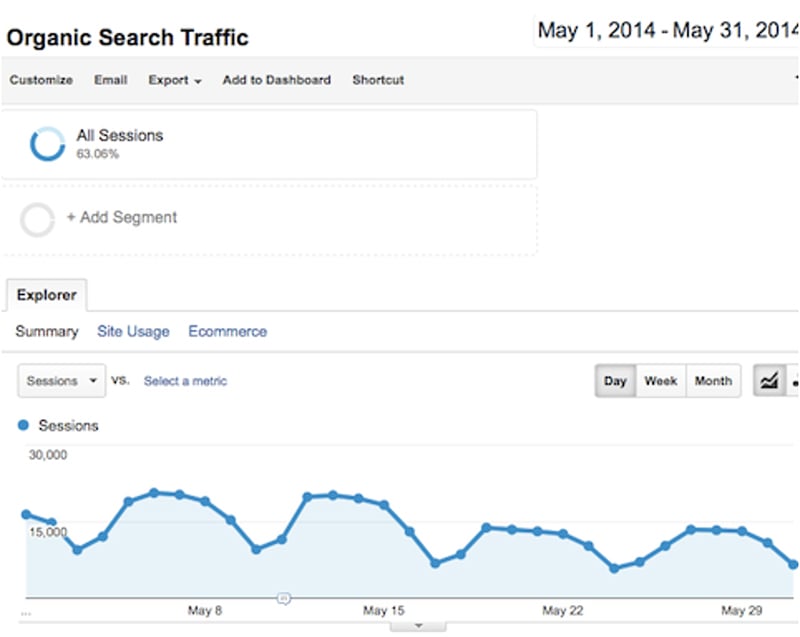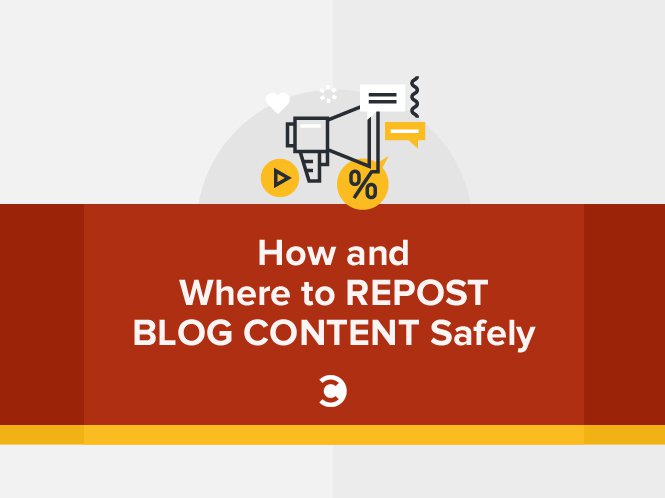Author: Sean Martin / Source: Convince and Convert: Social Media Consulting and Content Marketing Consulting It’s no surprise that after

It’s no surprise that after all the time and energy you put into creating a blog post, you want it to generate the reads and engagements you feel it deserves.
Researching, developing, and writing blog posts is only the first half of content marketer’s jobs. The other half of the day consists of making sure that all of your hard work creating the post doesn’t go to waste. Promoting your blog posts on the right platforms and through the right channels is vital if you want your content to be read.
But promotion is a tricky subject. And most of the time, it includes paid social advertising campaigns that are poorly managed and don’t see strong results. With this as the norm, it’s no surprise that some content marketers have started re-posting their blog content on other domains to maximize its visibility.

While this may seem like a good idea and an easy way to broaden your visibility, you can run into some serious trouble with Google here. Whenever you are thinking of re-posting a blog post on another site, remember this bit of expert advice: Google hates twins.
So how can you broaden the visibility of your content to make sure it engages well? How can we all milk each piece of content for every drop of value it has to offer?
Pros and Cons of Reposting Blog Content
Let’s start off by addressing the pros and cons of reposting.
The pros are obvious: If you have seen serious engagement with one of your blog posts, you will want to repeat that success on other high-traffic channels. Theoretically, the successful engagements and traffic from your original post will be replicated on other channels—more visibility, more traffic, more conversions, more leads. But this, sadly, just isn’t the case most of the time. Sorry to burst your bubble.

The cons, or potential cons, are far more devastating. Thankfully, Neil Patel has done some testing for us. We don’t have to suffer the same fate he had to in order to provide us with this screenshot.

As you can see from Neil’s case study, getting hit by the duplicate content penalty by Google is no joke. This will mess up your search traffic for the next few months, and nobody wants that. And even if you don’t get hit with a Google penalty, the bump in traffic to your actual domain from the reposts most likely won’t be worth the risk.
Consider the following:
- You create an awesome blog post that generates high engagement among your readers.
- That blog post is now responsible for, let’s say, 50 new visitors a day.
- These visitors come directly from your first page-ranked Google SERP link.
- Traffic flows from Google through your site and focuses the users on conversion.
Now let’s look at a possible reposting option:
- You create an awesome blog post that generates high engagement among your readers.
- You get excited and repost that blog on LinkedIn, Medium, and Triberr (just to start).
- Instead of finding your post on Google and clicking through to your page, users find the post on third party social media sites.
- Users decide, as they often do, to not click through the backlink and just read the post there.
- Nobody ever touches your site, and nobody converts.
And this is if you don’t get hit with a penalty. While reposting your content may be a great way to broaden your brand recognition as a thought leader, it isn’t exactly helping your conversions.

This is why, when given the choice between reposting one of your blog pieces as a guest post or just using it exclusively as a guest post, the second choice is usually the best option. Guest posting will get you a backlink to your site (good for ranking) and a new channel to generate leads (good for growth). Plus, you avoid the penalty risk. All pros, no cons.

3 Ways to Repost Your Blog Content Safely
If you’re still dedicated to reposting your blog on a third party site, I don’t want you going out into that cold…

COMMENTS